Created by iGaming Solutions News & Support by Winto
The global iGaming industry has witnessed tremendous growth over the past decade, driven by technological innovation and the increasing popularity of online entertainment. However, along with this growth comes a complex web of regulatory requirements that iGaming providers must navigate to remain compliant and competitive. Meeting these requirements is crucial to maintaining trust, avoiding hefty penalties, and sustaining long-term business success.

In this article, we delve into the key challenges facing iGaming providers concerning regulatory compliance and explore effective solutions to overcome them. We will also highlight how partnering with specialized service providers and leveraging platforms like Winto provider services can simplify the path to compliance.
Understanding Regulatory Compliance in iGaming
Regulatory compliance in iGaming refers to adhering to the rules and laws established by different jurisdictions where gambling services are offered. The aim is to protect players, promote responsible gambling, and ensure the integrity of online gaming operations. However, the highly fragmented nature of global gambling regulations poses significant challenges to providers operating across multiple regions.
Key aspects of regulatory compliance in the iGaming industry include:
- Licensing: Obtaining licenses from relevant gaming authorities.
- Anti-Money Laundering (AML) and Know Your Customer (KYC): Implementing stringent customer identification and monitoring procedures.
- Responsible Gambling: Providing tools and resources to help users gamble responsibly.
- Data Protection: Safeguarding customer information in line with data privacy laws.
Failure to comply with these regulations can result in severe penalties, loss of licenses, and reputational damage.
Major Challenges iGaming Providers Face
- Fragmented Global Regulations
One of the biggest challenges for iGaming providers regulatory compliance. Different countries and even regions within the same country may have unique laws governing online gambling. For instance, regulations in Europe can vary greatly between the United Kingdom, Malta, and Sweden. - Constantly Changing Compliance Requirements
The dynamic nature of the gaming industry means that regulations are frequently updated to address new technologies and consumer protection issues. Staying updated on these changes and adapting operations accordingly can be resource-intensive. - AML and KYC Compliance
AML and KYC processes are crucial for preventing fraud and money laundering. However, implementing comprehensive systems to monitor transactions and verify user identities without creating friction in the user experience remains a difficult balancing act. - Data Privacy and Security
With the rise of data privacy regulations such as the GDPR in Europe, iGaming providers must invest in robust cybersecurity measures. Ensuring compliance with these standards while managing the risks associated with data breaches is a critical challenge. - Responsible Gambling
Promoting responsible gambling practices involves deploying features like self-exclusion, deposit limits, and real-time monitoring of gambling behavior. Many regulators require providers to proactively prevent problem gambling, adding another layer of complexity to compliance efforts.
Solutions for Navigating Compliance Challenges
- Partnering with an iGaming Solutions Provider Working with a reputable iGaming solutions provider is one of the most effective ways to ensure regulatory compliance. Solutions providers offer whitelabel platforms, tailored software, and compliance services designed to meet the specific needs of iGaming businesses. By leveraging their expertise, companies can streamline operations and remain focused on growth.
- Utilizing White Label iGaming Platforms offers a ready-made, fully licensed solution that includes built-in compliance tools. These platforms handle many regulatory obligations on behalf of operators, including age verification, AML systems, and responsible gambling features.
- Implementing Advanced Compliance Software Automated compliance tools powered by AI and machine learning can enhance the efficiency of AML and KYC processes. These systems monitor transactions, flag suspicious activities, and streamline identity verification in real-time.
- Regular Compliance Audits Conducting routine compliance audits helps ensure that operations align with the latest regulatory standards. Internal and third-party audits can identify gaps and recommend improvements to mitigate potential risks.
- Partnering with Experts Like Winto Provider Services Winto provider services specialize in delivering customized solutions that address the specific regulatory needs of iGaming operators. Their comprehensive approach integrates licensing support, AML and KYC solutions, and advanced data protection strategies, helping businesses stay compliant while enhancing user experience.
Why Choose Winto Provider Services?
Winto provider services stand out as a trusted partner in the iGaming landscape, offering tailored solutions that prioritize regulatory compliance without compromising performance. Key benefits of choosing Winto include:
- Comprehensive Compliance Support: Winto offers end-to-end support for obtaining gaming licenses, ensuring that all jurisdictional requirements are met.
- Advanced KYC and AML Tools: Their innovative technologies streamline user verification and transaction monitoring, reducing fraud and enhancing security.
- Customizable White-Label Solutions: Winto’s whitelabel iGaming platforms are designed with flexibility, allowing operators to deliver unique gaming experiences while remaining fully compliant.
- Dedicated Expertise and Consultation: Winto’s team of industry professionals provides strategic guidance to navigate the evolving regulatory landscape with confidence.
By partnering with Winto, iGaming operators can focus on growth and innovation while ensuring robust compliance management, ultimately building trust with players and regulators alike.
The Role of Technology in Regulatory Compliance
Technology plays a pivotal role in simplifying compliance for iGaming providers. Modern platforms offer built-in compliance management features, such as:
- Automated Player Verification: Seamless KYC checks using digital identity verification tools.
- Real-Time Transaction Monitoring: AML systems that detect unusual transaction patterns.
- Self-Exclusion and Limit Setting Tools: Features that empower users to manage their gambling behavior.
- Data Encryption and Cybersecurity Measures: Protecting sensitive customer information against breaches.
By integrating these technologies into their operations, iGaming businesses can enhance their compliance posture and reduce manual processes.
Conclusion
Navigating regulatory compliance in the iGaming industry is undeniably challenging. However, with the right strategies, tools, and partners, providers can overcome these hurdles and create a secure, responsible, and successful gaming environment. Leveraging the expertise of specialized service providers like Winto provider services and adopting whitelabel iGaming platforms ensures a proactive approach to compliance, safeguarding business integrity and user trust.
In an industry where regulations evolve rapidly, staying informed, agile, and well-prepared will position iGaming providers for sustainable growth and long-term success.



